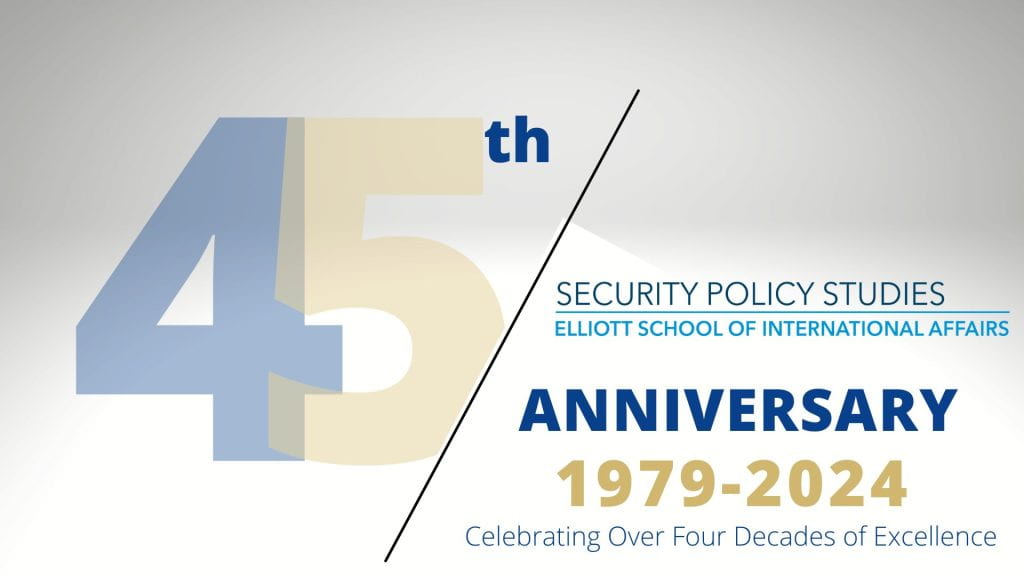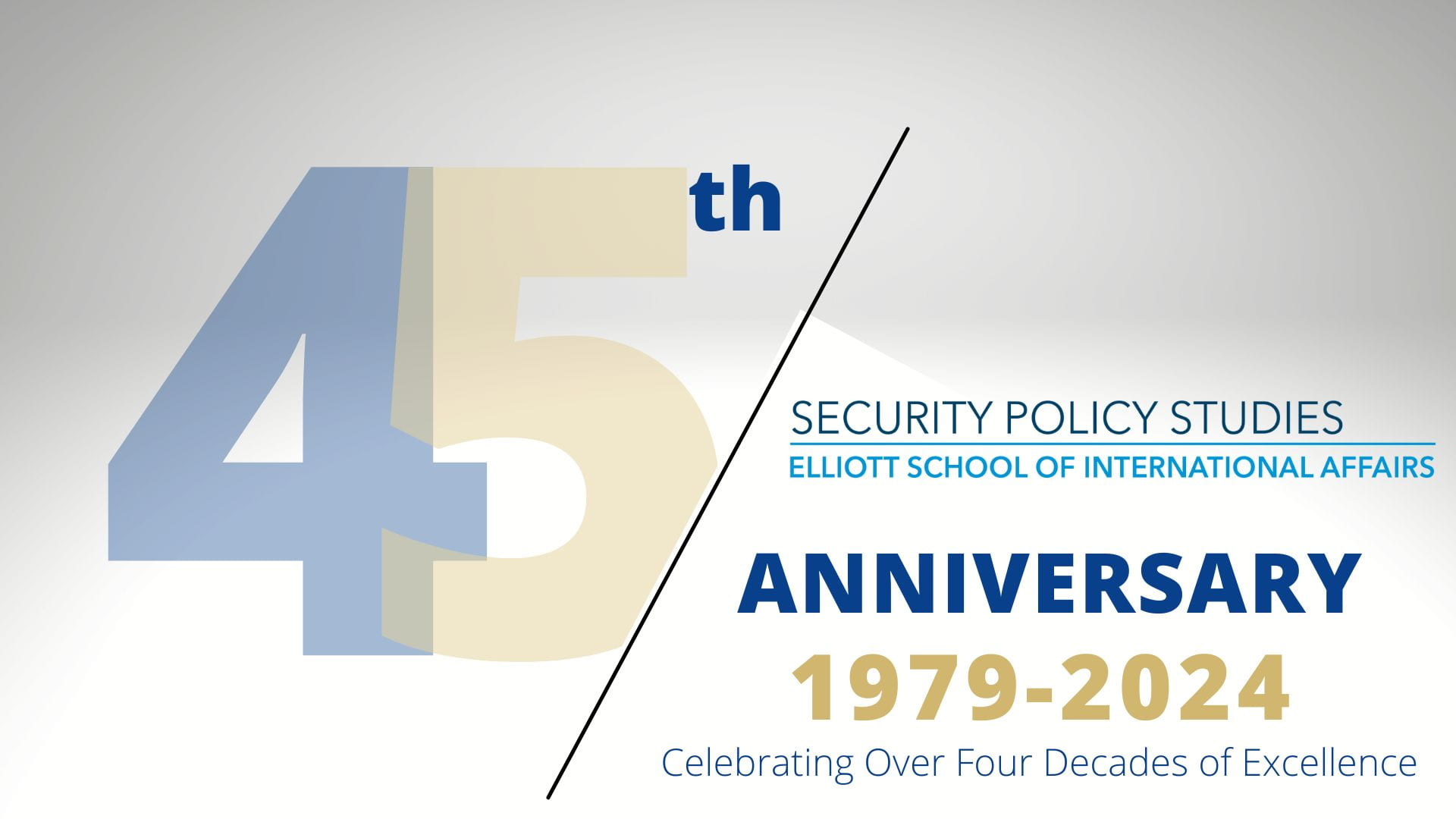A Brief History of Security Policy Studies at Elliott, 1979-2024
By Professor Paul D. Williams, SPS Program Director

The Elliott School’s M.A. program in Security Policy Studies (SPS) was born out of the George Washington University’s collaboration with U.S. military colleges that started in 1961. Across two decades, the university offered master’s degrees to military officers; tuition back then was $81 per semester hour!
The Security Policy Studies program officially launched in 1979, when Professor Burton Sapin recognized the importance of studying how the United States dealt with its foreign policy and security problems. The program examined how security policies are formulated, implemented, and evaluated, which remains the central task of SPS today.
Over the coming decades, the program evolved and grew in response to emerging issues in the field. For example, SPS broadened its curriculum to include environmental and economic challenges and emerging concerns about terrorism. In the 1990s, SPS Director Deborah Avant decided to add skills-based courses to enable students to learn first-hand how security agencies and organizations really operate.
Professor Avant also instituted a practicum capstone. “I will never forget that first capstone,” she said. “It was a simulation with Admiral/Ambassador Crowe playing president. It was so rewarding to see the students use both their theoretical and practical training as they worked through the scenario.”
September 11, 2001, was a watershed moment for the security studies field, at Elliott and elsewhere. Under Professor Joanna Spear’s leadership, the SPS program responded with a renewed emphasis on transnational security issues, including a focus on how intelligence communities were responding to them. New courses launched, including Understanding Terrorism, Responses to Terrorism, Counterinsurgency, and Transnational Security Issues.
The program also launched a specialized concentration in “Security and Development,” to give students a “toolbox” to take into their careers.” And thanks to a donation from the Cumming Family, SPS ran a series of workshops culminating in the co-edited book, Security and Development in Global Politics: A Critical Comparison (Georgetown University Press, 2012).
By the late 2010s, counterterrorism and counterinsurgency were receding from the list of U.S. national security priorities. Of course, both issues persisted, but the Washington spotlight returned to great power competition, codified in the 2018 U.S. National Defense Strategy. Today’s SPS program, with its four concentration areas, grew out of faculty members’ work to ensure the SPS curriculum provided students with key foundational knowledge, along with flexibility to specialize in areas relevant to their career aspirations.
In 2020, the COVID pandemic affected every dimension of higher education. Leading the SPS program into the realm of online and hybrid learning, Program Director Professor Arturo Sotomayor made a significant advancement by managing risks and uncertainties while also diversifying the student body. In fall 2022, with students back on campus, the Elliott School launched the SPS online degree in U.S. National Security.
Amidst the challenging conditions brought on by the pandemic, the SPS Student Board served as an essential conduit between educators and students. A vibrant and active student body is one indicator of a flourishing program, and our Student Board plays a vital role in ensuring student voices are part of the program’s governance and building a strong sense of community and friendship among an SPS student body.
This year, as we celebrate the 45th anniversary of the SPS program, we are grateful to past directors, who kept an eye on emerging trends and adapted the curriculum accordingly. The program’s suite of professional skills courses is second to none, helping students develop distinctive selling points in competitive job markets. Today’s SPS students are comfortable operating in cyberspace as well as physical space. And they have a keen interest in data analytics—to better understand and present evidence, trends, arguments, and conclusions.
The Security Policy Studies program is not an island! We have greatly benefited from being part of the larger suite of postgraduate programs offered at the Elliott School and the George Washington University, which provide students with a large range of multidisciplinary options. SPS students learn from an impressive array of courses: covering issues from global health security to national security law and from hacking cyber systems to understanding geographic information systems.
Many part-time faculty—often practitioners—help to enrich the SPS program despite their own hectic professional schedules. To demonstrate the degree of dedication: Bruce Powers has consistently taught defense policy for over three decades. The program’s gratitude goes to Bruce and to each and every part-time faculty member.
Clearly, the efforts of many people have shaped the highly successful SPS program of the 2020s. Here’s to the next 45 years and beyond.

